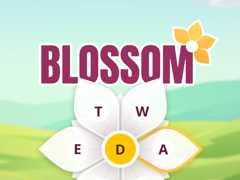Definition
Definition
Did you know?
Synonyms
Synonym Chooser
Example Sentences
Word History
Rhymes
Entries Near
Related Articles
Podcast
- To save this word, you'll need to log in.
perennial
adjective
Did you know?
When you hearperennial, you probably think ofpeonies rather than pines. The word today typically describes (or, as a noun, refers to) plants that die back seasonally but produce new growth in the spring. But this wasn’t the word’s initial meaning: originally,perennial was equivalent toevergreen, used, as that word is, for plants that remain with us all year. We took this "throughout the year" sense straight from the Romans, whose Latin wordperennis combinedper- ("throughout") with a form ofannus ("year"). The poet Ovid, writing around the beginning of the first millennium, used the Latin word to refer to a "perennial spring" (a water source), and the scholarPliny used it of birds that don't migrate.Perennial retains these same uses today, for streams and occasionally for birds, but the word has long since branched out to encompass several other senses, including "constant" (as in "a perennial bestseller") and "recurring" (as in "the perennial joy of reading Merriam-Webster’s Word of the Day").
Synonyms
continual,continuous,constant,incessant,perpetual,perennial mean characterized by continued occurrence or recurrence.
continual often implies a close prolonged succession or recurrence.
continuous usually implies an uninterrupted flow or spatial extension.
constant implies uniform or persistent occurrence or recurrence.
incessant implies ceaseless or uninterrupted activity.
perpetual suggests unfailing repetition or lasting duration.
perennial implies enduring existence often through constant renewal.
Examples ofperennial in a Sentence
Word History
circa 1660, in the meaning defined atsense 1
Rhymes forperennial
Browse Nearby Words
Articles Related toperennial
Podcast
Get Word of the Day delivered to your inbox!
Cite this Entry
“Perennial.”Merriam-Webster.com Dictionary, Merriam-Webster, https://www.merriam-webster.com/dictionary/perennial. Accessed 16 May. 2025.
Kids Definition
perennial
1 of 2adjectiveperennial
2 of 2nounMedical Definition
perennial
adjectiveMore from Merriam-Webster onperennial
Nglish:Translation ofperennial for Spanish Speakers
Britannica.com:Encyclopedia article aboutperennial
Subscribe to America's largest dictionary and get thousands more definitions and advanced search—ad free!
Merriam-Webster unabridgedMore from Merriam-Webster
[8]ページ先頭



